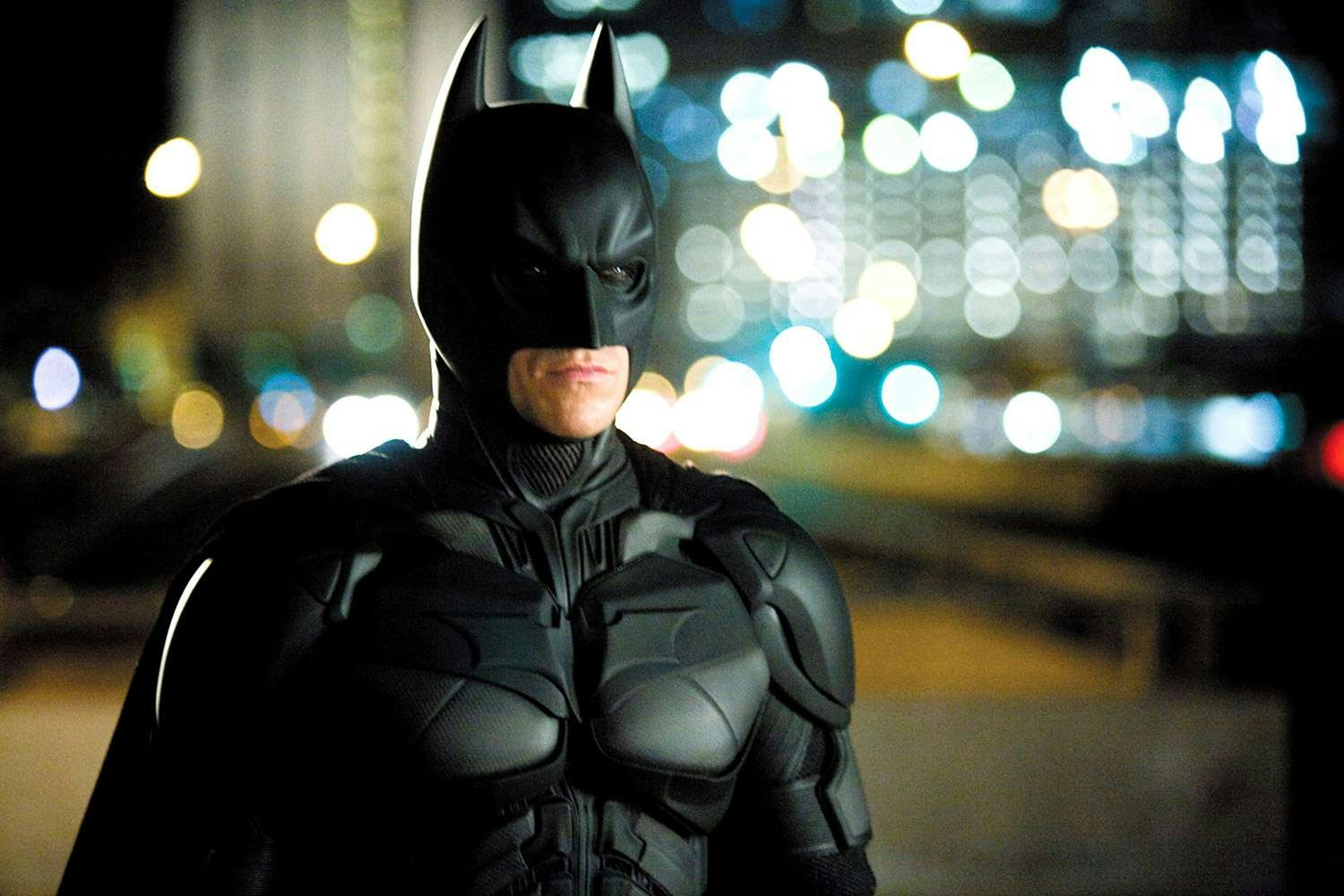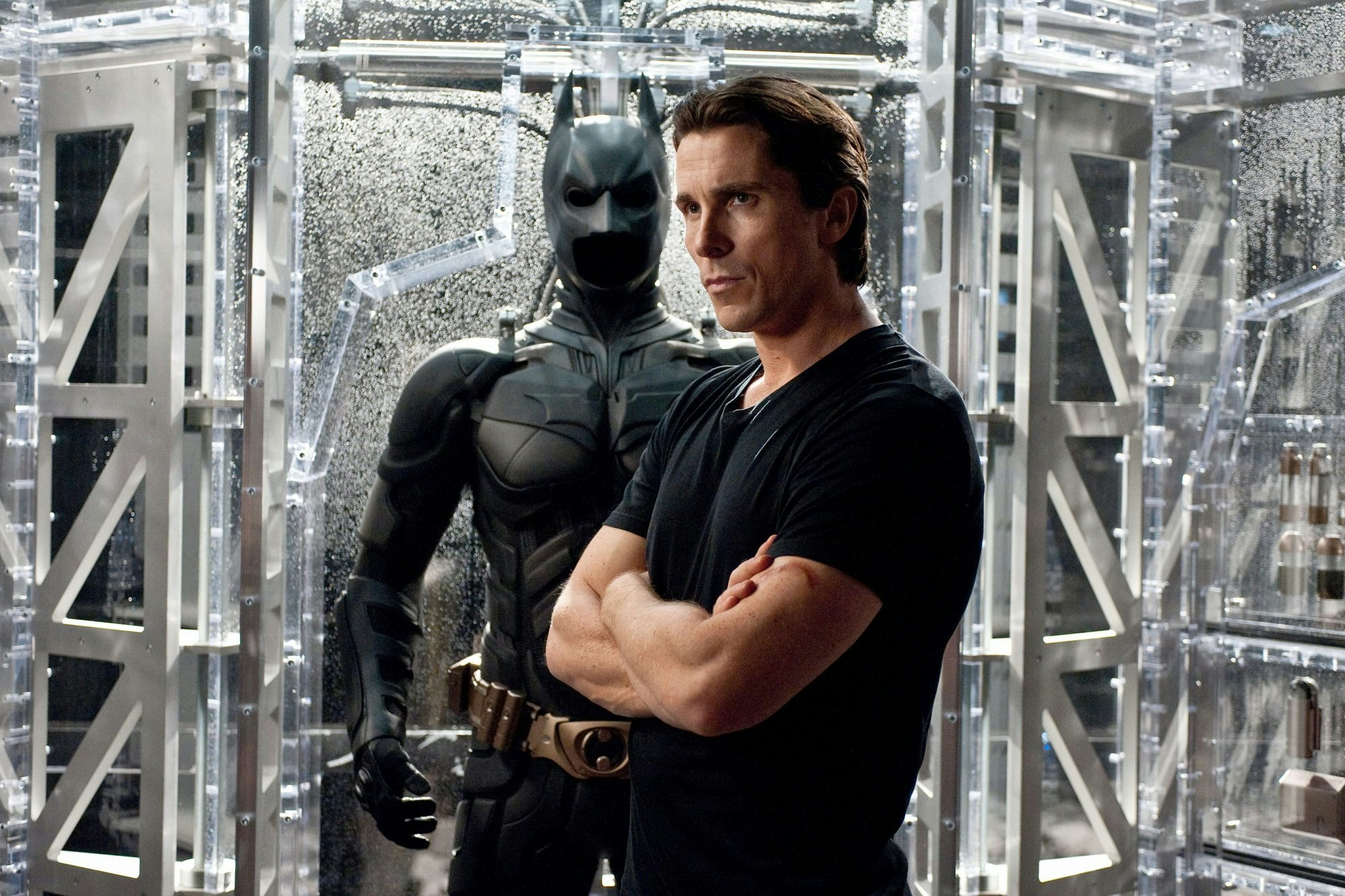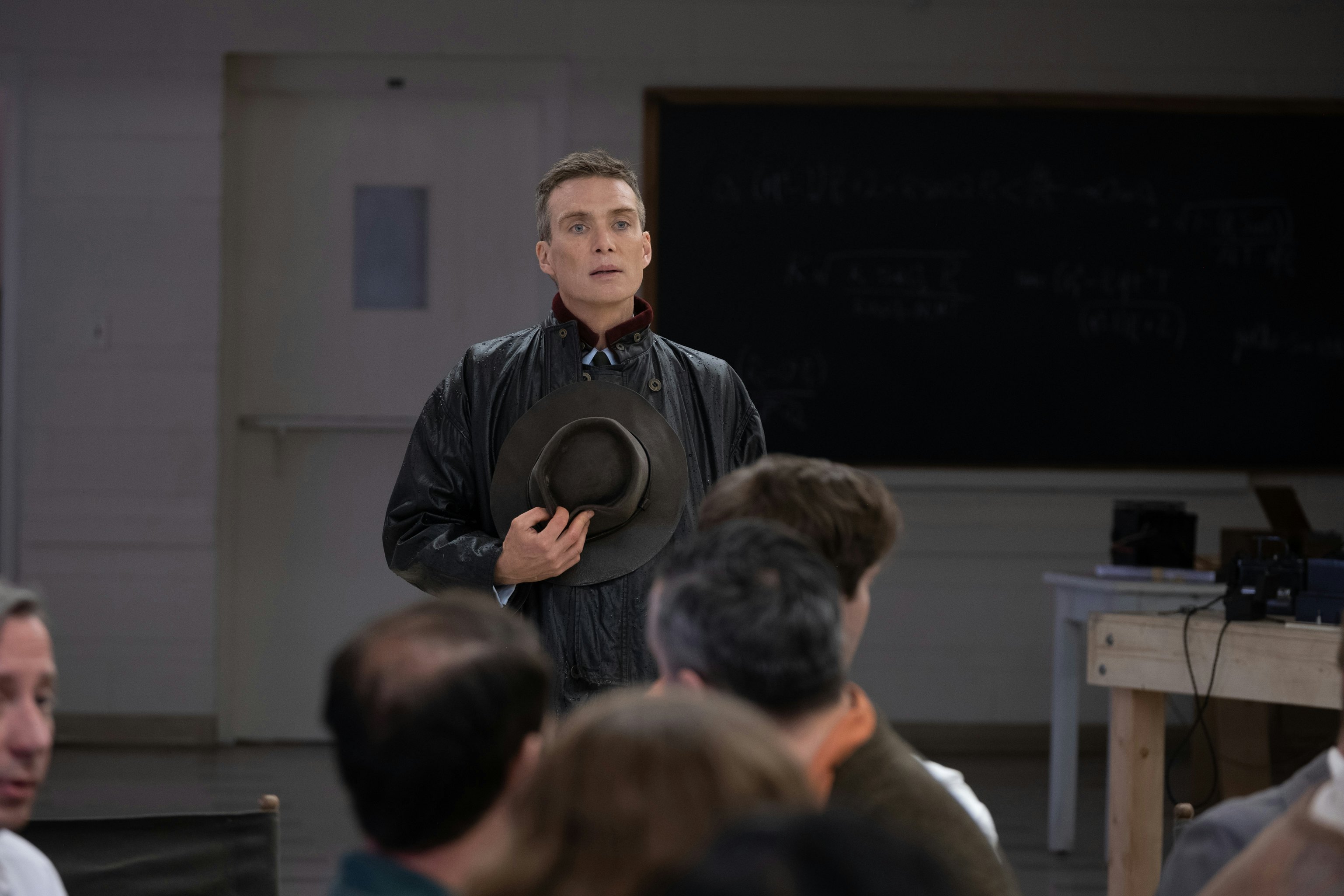
Christopher Nolan is obsessed with consequences. If you look at his films, you’ll find not only more one-note dead wives than even he’d care to admit, but an assortment of male geniuses who are forced to reckon with the losses they bring upon themselves and those they love. That’s especially true of Cillian Murphy’s J. Robert Oppenheimer, the real-life scientist at the center of Nolan’s new magnum opus.
The father of the atomic bomb, Oppenheimer has always been a complex historical figure. Through Nolan’s eye, he’s a brilliant but naive scientist whose involvement in the Manhattan Project resulted in the deaths of thousands of Japanese civilians and condemned him to a life of relentless, torturous guilt. “Now I am become death, destroyer of worlds,” Murphy says not just once but twice throughout the film. Prior to Oppenheimer‘s release, that was both a famous recollection from the scientist himself and a line from the Bhagavad-Gita. Now, it’s a sign of the millstone Oppenheimer himself wore around his neck, partly of his own volition.
Oppenheimer is, in many ways, the most explicit treatise on the cost of genius that Nolan has ever constructed, but it isn’t the first time he’s recast an iconic figure in such a tragic light. His treatment of Oppenheimer, in fact, calls to mind his morally gray, politically-minded vision of none other than the Caped Crusader himself.

One of the most humorous interpretations put forth in the wake of Oppenheimer’s release is that the film represents Nolan’s own reckoning with his involvement in the superhero craze that has helped bring Hollywood to the brink of creative destruction. Whether you buy into that reading of the film or not, there’s something to be said for Oppenheimer’s connection to Nolan’s three Batman movies. In all four films, the director explores — in wildly different ways — the danger of putting one’s own self-fulfillment above the good of the world.
In Batman Begins, Bruce Wayne takes Gotham’s criminal underworld by storm, only to find himself forced to save his city from the very man who inspired his crime-fighting ways. By bringing the League of Shadows’ methods to Gotham, Bruce comes dangerously close to destroying the city itself. He doesn’t learn from his mistakes, though. Instead, he expresses dismay when he’s presented in The Dark Knight with a sadistic, twisted version of himself in The Joker (Heath Ledger). In response, Alfred (Michael Caine), posits that the Joker only exists because of Batman. When he decided to use violence and theatricality to prove his point about Gotham’s goodness, Bruce inadvertently inspired someone else to use the same methods to prove the exact opposite.
In order to defeat The Joker, Nolan’s Batman, a Bush-era vigilante through and through, resorts to Patriot Act-esque widespread surveillance measures and lies about Harvey Dent (Aaron Eckhart) in order to cement his legacy. Both he and Jim Gordon (Gary Oldman) compromise themselves morally and politically at the end of The Dark Knight, and Gotham is nearly destroyed in The Dark Knight Rises when Bane (Tom Hardy) reveals their lies to the public. Faced with total public anarchy, Bruce and Gordon call upon the governmental systems of Gotham (i.e. its police officers) to bring it back from the brink of collapse. In doing so, they ally themselves with the very untrustworthy, insufficient institutions they rebelled against in the first place.

In Nolan’s world, not even Batman is able to stand uncompromisingly between the people and systems of the world. Only in death can he separate himself and his image from the turbulent forces within Gotham, but J. Robert Oppenheimer doesn’t get that chance. Nolan repeatedly emphasizes Oppenheimer’s inability to commit to one course of action. He poisons his professor’s apple but stops him short of eating it. He befriends and enjoys the loyalty of his Communist friends without ever committing to their cause. He is, as Oppenheimer emphasizes, a theoretician who relies on others to make the physical, tangible decisions for him.
Once he arrives at Los Alamos, that line between theoretician and bombmaker becomes a crutch. Oppenheimer uses his position as a professional thinker to separate himself from the men who intend to drop the bomb he helps create. That’s made apparent once Oppenheimer learns that Adolf Hitler is dead, a twist that removes the danger of the Nazis achieving nuclear power. When he’s asked how he can still move forward with the making of an atomic bomb, Oppenheimer responds that the world’s non-scientists won’t actually know the power of a nuclear weapon until they’ve used it. Once again, he divorces himself from the consequences of his actions.

When the news of the bombing of Hiroshima is announced, Oppenheimer gives a speech to the residents of Los Alamos, during which he sees visions of charred corpses and innocent people suffering from radiation poisoning. His ideas are no longer theory. They have been put to use, and he is, whether he admits it or not, culpable. Oppenheimer’s growing guilt becomes clear in the film’s second half, which sees him attempt to soften the impact of his creation by publicly pleading for atomic transparency between nations.
He goes through official, governmental channels to rectify his mistakes, but unlike the cringeworthy Wall Street fantasy that ends The Dark Knight Rises, Oppenheimer isn’t saved by America’s institutions — he’s destroyed by them. The nation’s political leaders make their distaste for his air of moral superiority known, and they thoroughly rob him of it. Oppenheimer’s response to their questioning is to say that he didn’t grasp the moral implications of the Manhattan Project’s efforts until he realized a new bomb would always, inevitably be used. The claim is, to put it simply, inadequate. Similar to Christian Bale’s Batman, Oppenheimer is brought down by his own arrogant naïveté. As much as he’d like to, he cannot separate himself from the consequences of his decisions.

There is, of course, a key difference between Nolan’s treatment of Batman and his depiction of Oppenheimer. In the case of the former, Nolan offers the possibility of redemption and freedom. His Bruce Wayne liberates himself and Gotham by faking his own death in a nuclear explosion (the parallels are too obvious to point out). Cillian Murphy’s Oppenheimer doesn’t get the same escape route. Such is the case with history, which can be as much a prison as it can a record.
In Oppenheimer, the possibility of nuclear annihilation hangs over its eponymous scientist the same way it does all of us, as it has ever since the Trinity Test was successfully completed. His fate befits his impact. There is, after all, a danger to taking the law into your own hands, but an even greater one to playing God.







